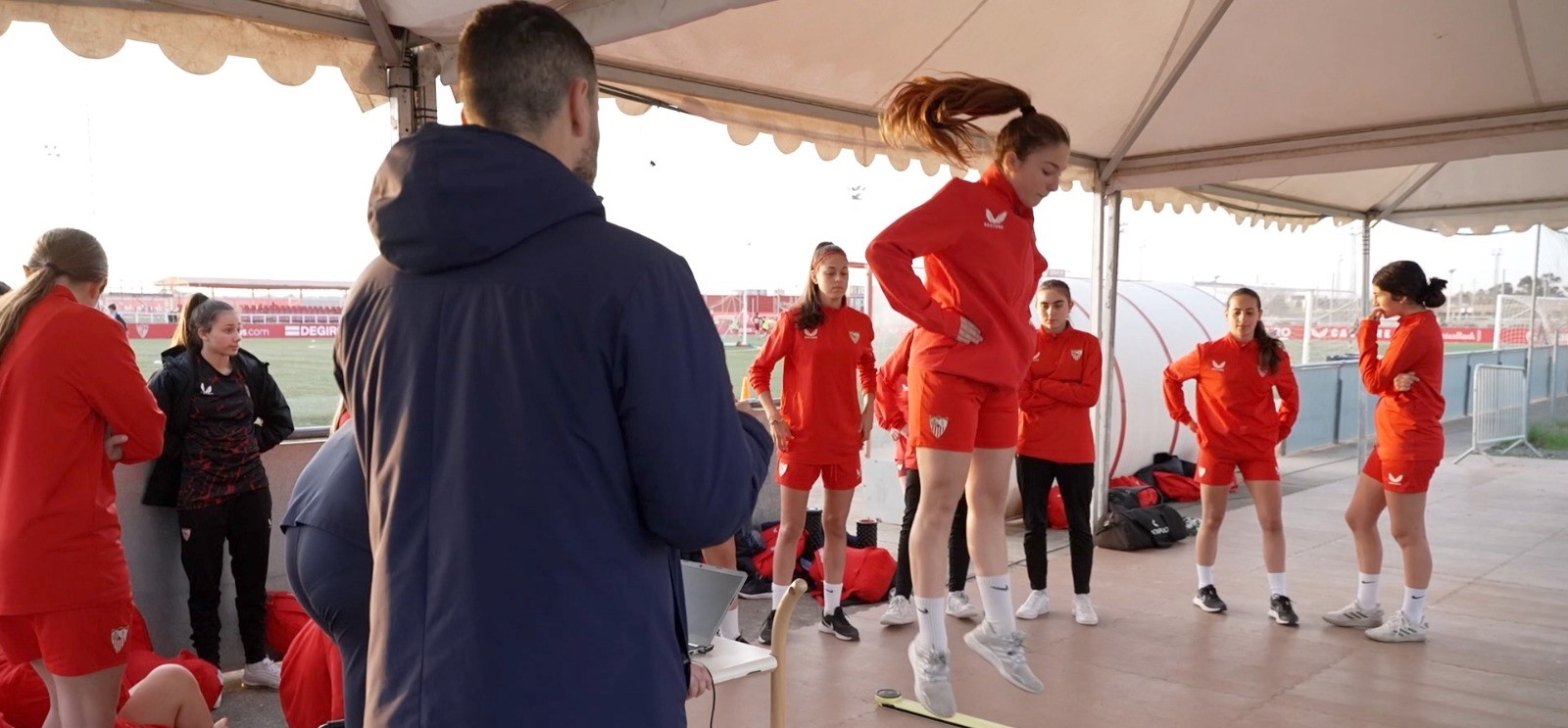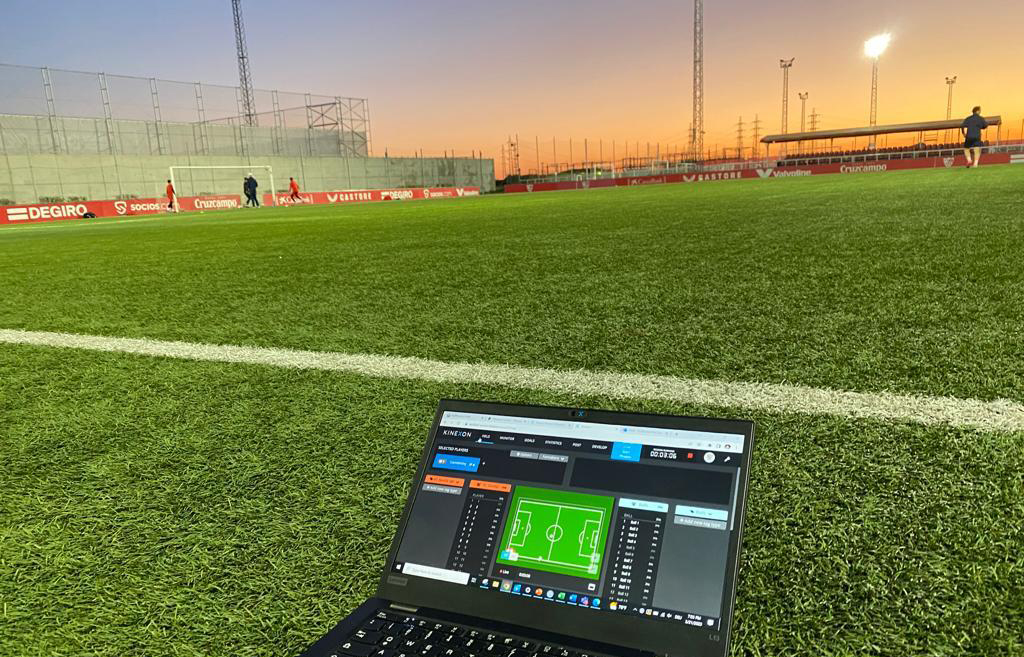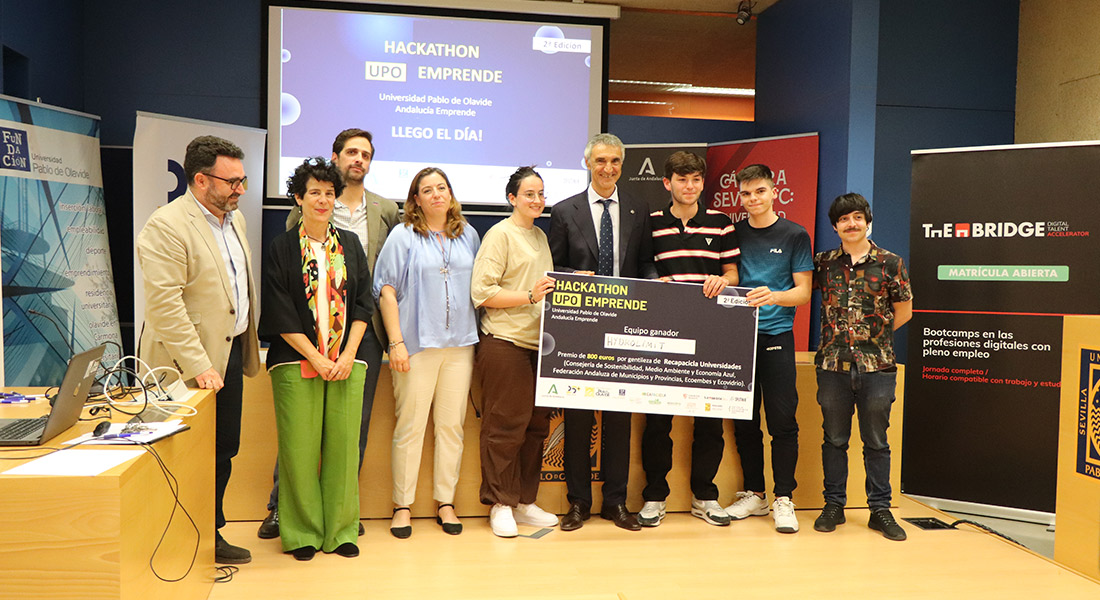
The LaLiga Impulse Plan has been a significant advancement for Spanish football clubs in terms of innovation, allowing them to materialize many of their future projects. In the case of Sevilla FC, talking about innovation is discussing one of the pillars of its strategic plan for the coming years. Technological development is a major commitment that is positioning the club at the forefront of European football. This is a path that all areas of the organization are taking, with a particular emphasis on the sports sector, where women’s football plays a significant role in present and future plans.
In this sense, the arrival of the Impulse Plan and CVC funds has facilitated the implementation of technological systems throughout the structure of Sevilla FC’s women’s academy. ‘Our commitment to women’s football is not something new, but this contribution pushes us to grow more in terms of human resources and facilities,’ explains Ramón Rodríguez Verdejo, Monchi, the club’s Sporting Director. ‘The R&D department presented this project to us, and we understood that it was an opportunity to streamline and reduce the time it takes for a player to reach and adapt to the first team,’ emphasizes Amparo Gutiérrez, Director of Women’s Football at the club.
The advent of data and its multiple analyses on a large and small scale has revolutionized the world of football. Sevilla FC realized several years ago that a path of differentiation from competitors was opening up. Through its R&D department, the club developed a strategy to stay ahead of rivals. Now, all these advances are reaching the women’s football division of the organization. ‘There were things to improve, and we want to address them with the women’s performance department, using data to enhance the women’s teams and align their resources with those of men’s football,’ analyzes Monchi.
his project launched by Sevilla FC for its women’s academy will represent a qualitative leap in the physical preparation and training methods of the Sevilla female youth players. ‘All the knowledge we have acquired over the years in the R&D department, we want to make it available to the women’s academy and adapt it to their particularities,’ argues José María Cruz Gallardo, head of that department. Currently, the cadet, youth, and senior teams conduct two sessions per week, meticulously collecting data on speed, endurance, strength, and other parameters for subsequent analysis.
The technological infrastructure that Sevilla FC has acquired in recent years enables the implementation of such an ambitious project. ‘The provision of all the technological equipment we have is a means to achieve performance improvements through the analysis of data obtained with non-invasive methods,’ explains Cruz Gallardo. He recalls a reflection on which Sevilla FC bases its commitment to technological innovation: ‘What is not measured cannot be improved, and what is not improved eventually degrades.

